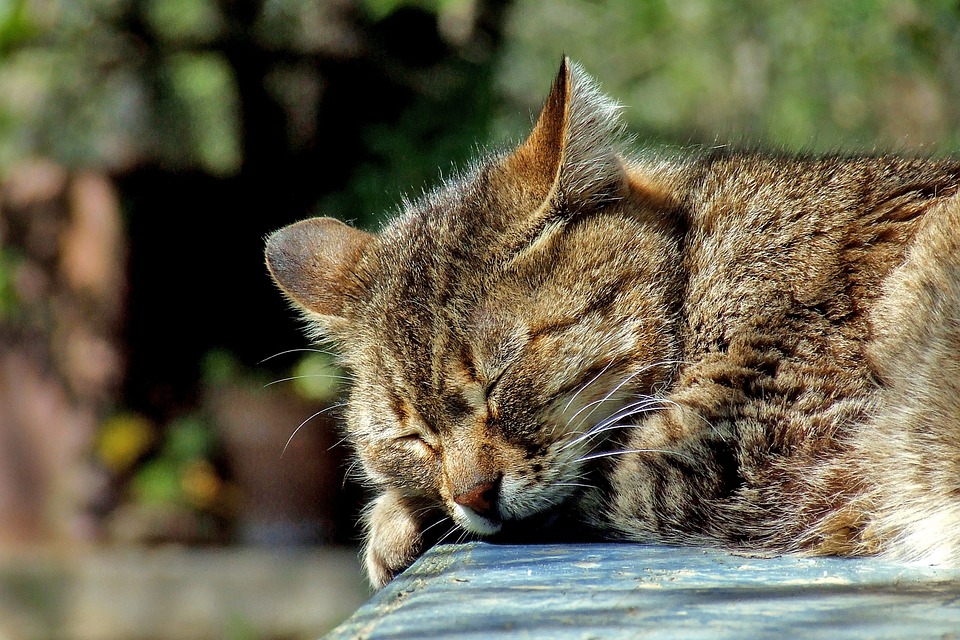Cats are curious creatures, and just like humans, they have their own set of behaviors. One common behavior that many cat owners struggle with is destructive chewing. From furniture to electrical wires, cats can wreak havoc in our homes if this behavior is not addressed. In this article, we will explore the reasons behind destructive chewing in cats and provide practical tips on how to prevent it. So, let’s dive in!
Understanding Destructive Chewing in Cats
Before we jump into prevention strategies, let’s take a moment to understand why cats engage in destructive chewing behavior. Here are a few common reasons:
1. Teething: Just like puppies, kittens go through a teething phase. Chewing can provide relief for their sore gums and help their adult teeth come in.
2. Boredom: Cats are intelligent creatures with a natural instinct to hunt and explore. If they don’t have enough mental stimulation, they may resort to chewing on objects to alleviate their boredom.
3. Dental problems: Some cats may chew excessively due to dental issues such as gum disease or tooth decay. Chewing may provide temporary relief from the discomfort they experience.
4. Stress or anxiety: Cats may resort to destructive chewing as a coping mechanism when they are stressed or anxious. It helps them release tension and redirect their emotions.
Now that we understand some of the reasons behind destructive chewing, let’s move on to the preventive measures you can take to curb this behavior.
Preventing Destructive Chewing in Cats
1. Provide appropriate chewing outlets: Cats need an outlet for their chewing instincts. Offer a variety of safe and appropriate chew toys specifically designed for cats. These toys should be made of sturdy materials and free from small parts that could be swallowed.
2. Cat-proof your home: Identify potential hazards in your home and remove or secure them. Keep electrical cords, houseplants, and delicate items out of your cat’s reach. Use bitter sprays or deterrents on surfaces you want to protect from chewing.
3. Enrichment and playtime: Mental and physical stimulation are crucial for a cat’s overall well-being. Engage your cat in interactive play sessions using toys that mimic prey-like movements. Puzzle toys and treat-dispensing toys can also keep their minds occupied.
4. Dental care: Regular dental check-ups with your veterinarian can help detect and address any dental problems your cat may have. Brushing your cat’s teeth regularly can also help maintain good oral hygiene and reduce the urge to chew due to dental discomfort.
5. Positive reinforcement: Reward your cat when they engage in appropriate chewing behavior. Offer praise, treats, or playtime when you see them using their designated chew toys. This positive reinforcement will reinforce the desired behavior.
FAQs
Q: How can I tell if my cat’s chewing behavior is a problem?
A: If your cat’s chewing behavior becomes excessive, causes damage to your belongings, or poses a health risk, it’s considered problematic. Consult with your veterinarian if you are concerned about your cat’s chewing habits.
Q: Are there any specific breeds more prone to destructive chewing?
A: While destructive chewing can occur in any breed, some cats may have a stronger tendency towards this behavior. Siamese, Burmese, and Maine Coon cats are known to be more prone to chewing due to their curious and active nature.
Q: Is it normal for cats to chew on cords?
A: No, it is not normal for cats to chew on cords. Chewing on electrical cords can be extremely dangerous and potentially life-threatening. Ensure cords are secured and inaccessible to prevent accidents.
Q: Can chewing behavior be a sign of a medical problem?
A: Yes, excessive chewing can sometimes be a symptom of an underlying medical issue. If you notice a sudden change in your cat’s chewing behavior or suspect they may be in pain, consult your veterinarian for a thorough examination.
In conclusion, destructive chewing in cats can be a frustrating behavior for pet owners. By understanding the reasons behind this behavior and implementing preventive measures such as providing appropriate chew toys, cat-proofing your home, and ensuring proper dental care, you can effectively curb destructive chewing in your feline friend. Remember, patience and consistency are key when addressing any behavioral issue in cats.








